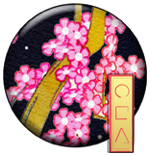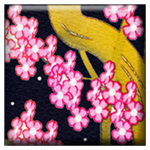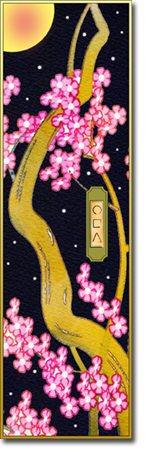On The Way: The Daily Zen Journal
Huang po – Questions and Answers
Huang Po (d. 850)

The Master said to me:
All the Buddhas and all sentient beings are nothing but One Mind, beside which nothing exists. This Mind, which is without beginning, is unborn and indestructible. It is not green nor yellow, and has neither form nor appearance. It does not belong to the categories of things which exist or do not exist, nor can it be thought of in terms of new or old.
It is that which you see before you – begin to reason about it, and you at once fall into error. It is like the boundless void which cannot be fathomed or measured. The One Mind alone is the Buddha, and there is no distinction between the Buddha and sentient beings, but that sentient beings are attached to forms and so seek externally for Buddhahood.
By their very seeking they lose it, for that is using the Buddha to seek for the Buddha and using mind to grasp Mind.
Q: What is the Way and how must it be followed?
A: What sort of thing do you suppose the Way to be, that you should wish to follow it?
Q: What instructions have the Masters everywhere given for dhyana practice and the study of Dharma?
A: Words used to attract the dull of wit are not to be relied on.
Q: If those teachings were meant for the dull-witted, I have yet to hear what Dharma has been taught to those of really high capacity.
A: If they are really people of high capacity, where could they find people to follow? If they seek from within themselves, they will find nothing tangible; how much less can they find a Dharma worthy of their attention elsewhere! Do not look to what is called the Dharma by teachers, for what sort of Dharma could that be?

Q: If that is so, should we not seek for anything at all?
A: By conceding this, you would save yourself a lot of mental effort.
Q: But in this way everything would be eliminated. There cannot just be nothing.
A: Who called it nothing? Who was this fellow? But you wanted to seek for something.
Q: Since there is no need to seek, why do you also say that not everything is eliminated?
A: Not to seek is to rest tranquil. Who told you to eliminate everything? Look at the void in front of your eyes. How can you produce it or eliminate it?

Q: If I could reach this Dharma, would it be like the void?
A: Morning and night I have explained to you that the Void is both One and Manifold. I said this as a temporary expedient, but you are building up concepts from it.
Q: Do you mean that we should not form concepts as human beings normally do?
A: I have not prevented you; but concepts are related to the senses; and, when feeling takes place, wisdom is shut out.
Q: Then should we avoid any feeling in relation to the Dharma?
A: Where no feeling arises, who can say that you are right?
Q: Why do you speak as though I was mistaken in all the questions I have asked Your Reverence?
A: You are a person who doesn’t understand what is said to him. What is all this about being mistaken?
Q: Up to now, you have refuted everything which has been said. You have done nothing to point out the true Dharma to us.
A: In the true Dharma there is no confusion, but you produce confusion by such questions. What sort of ‘true Dharma’ can you go seeking for?

Q: Since the confusion arises from my questions, what will Your Reverence’s answer be?
A: Observe things as they are and don’t pay attention to other people. There are some people just like mad dogs barking at everything that moves, even barking when the wind stirs among the grass and leaves.
Huang Po (d. 850)
Excerpted from The Zen Teaching of Huang po on the Transmission of Mind – translated by John Blofeld 1958





This is a classic exchange between one sincere student trying to finally get a grasp on what this One Mind is all about and how the experience of truly Being changes one’s experience of the world.
We know that everything we’ve been taught by society and conditioned to believe has not proven helpful on this journey.
However, that realization is just the beginning, and there are plenty of distractions that seem to keep us enmeshed. To hear an exchange like the one above where one person is speaking from Dharma mind and the other is struggling to understand from relative mind illustrates how wide the divide is.
And with the experience of awakenings, it is all too easy to get attached to our new way of seeing things. It’s at this point that the Hindu expression, “neti, neti” can be most helpful. Not only is it easy to remember, but in the act of saying “not this, not that,” one is letting go of yet another limited point of view.
True, it is another expedient, but a helpful one that frees us from our limited understandings. As long as we keep discarding them and making room for yet a bigger point of view, we won’t get stuck too long.
And, ultimately, having faith in the Way without needing a lot of signposts of where we are in the Way helps to liberate that sense that we are all just where we need to be.
“To study the Buddha Way is to study the self. To study the self is to forget the self. To forget the self is to be actualized by myriad things. When actualized by myriad things, your body and mind as well as the bodies and minds of others drop away. No trace of enlightenment remains, and this no-trace continues endlessly.”
Dogen
Your Friend along the Way,
Elana, Scribe for Daily Zen